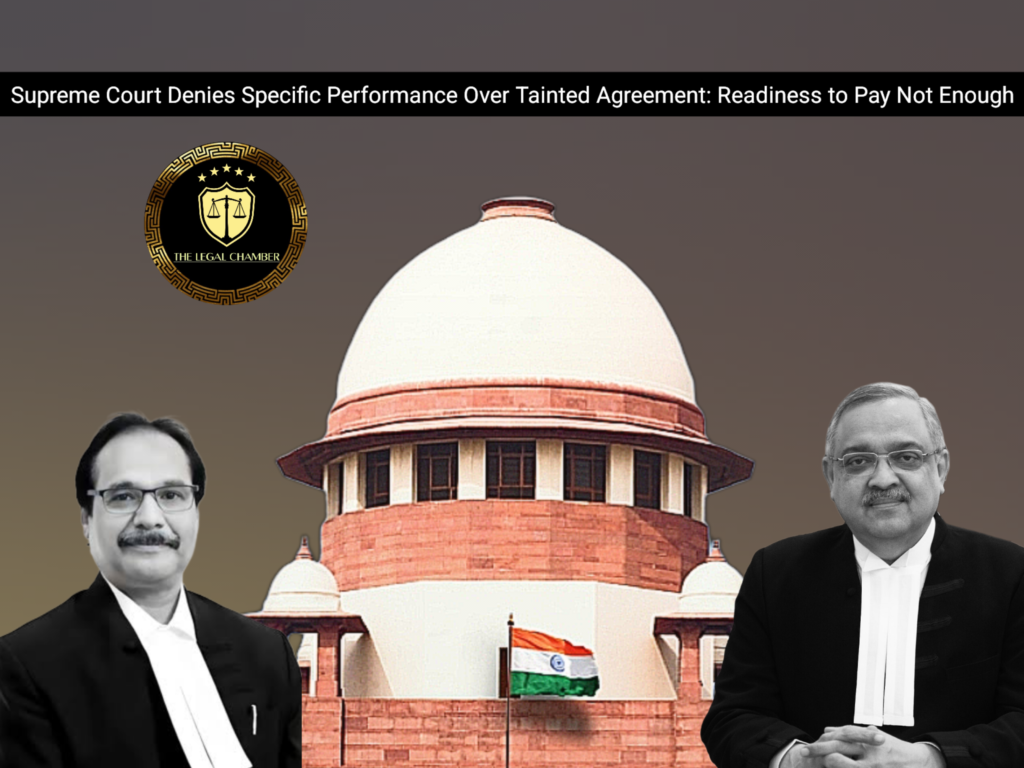
The Supreme Court upheld the denial of specific performance, ruling that a material alteration in the sale agreement—visibly apparent from the use of different ink for a property’s description—vitiated the contract. Courts are not always obligated to seek expert opinion under Section 73 of the Evidence Act when such an alteration is plainly discernible upon a mere perusal of the document itself.
Facts Of The Case:
The plaintiff-appellant, Syed Basheer Ahmed, entered into a sale agreement dated July 15, 1984, with the first defendant for the purchase of two properties: Item No. 1 (owned by the first defendant) and Item No. 2 (owned by a third party). The total agreed consideration was Rs. 56,000/-, with an advance of Rs. 1,000/- paid. The agreement stipulated that the sale deed was to be executed within three months. The plaintiff issued a notice before the expiry of this period, affirming his readiness and willingness to pay the balance. However, the first defendant responded by demanding the balance amount with interest. Crucially, after the agreement period, the first defendant sold both properties to the second defendant. The plaintiff had already filed a suit for specific performance based on the original agreement. The trial court decreed the suit in his favor, but the High Court reversed this decision upon finding a material alteration in the agreement document itself, specifically in the recitals concerning Item No. 2, which were written in a different ink. This finding of a tainted agreement formed the core of the dispute appealed to the Supreme Court.
Procedural History:
Final Decision & Judgement:
The Supreme Court dismissed the appeal and affirmed the judgment of the High Court. It found no reason to interfere with the High Court’s conclusion that the sale agreement contained a material alteration, which vitiated the contract and rendered it unenforceable. The Court held that the plaintiff’s suit for specific performance, based on this tainted agreement, was not maintainable. Consequently, the decree of the trial court granting specific performance was set aside, and the suit stood dismissed. No costs were awarded.
Case Details:
Case Title: Syed Basheer Ahmed vs. M/s. Tinni Laboratories Private Limited & Anr. CITATION: 2025 INSC 1030 Civil Appeal No.: Civil Appeal No. 11080 of 2014 Date of Judgement: August 21, 2025 Judges/Justice Name: Justice Prashant Kumar Mishra & Justice K. Vinod Chandran
Download The Judgement Here